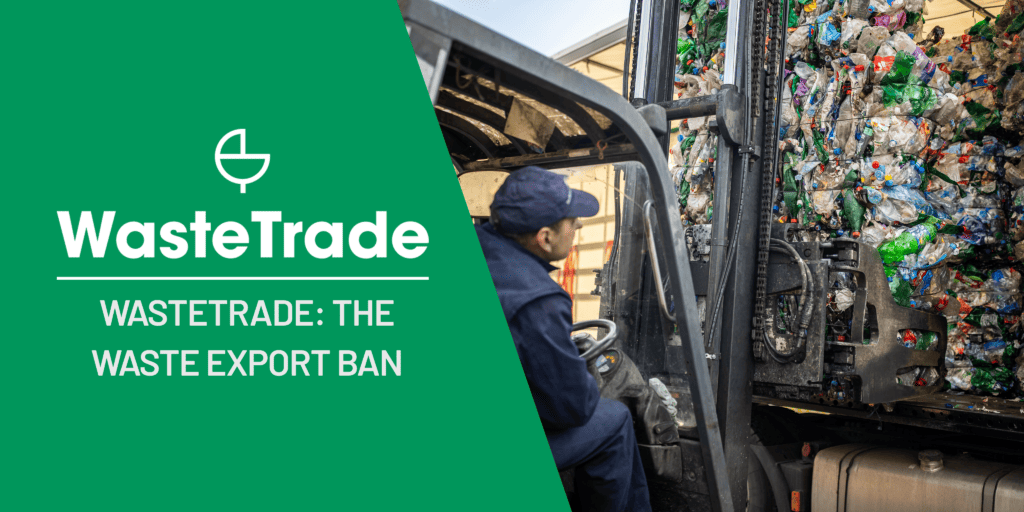Фев 1, 2024
Waste Export Ban and the Recycling Crisis | The WasteTrade Solution

The European Union’s recent decision to introduce the plastic waste export ban, both within and outside Europe, has sparked a significant crisis in the recycling market. This pivotal move, part of an agreement on the waste shipment regulation reached on 17th November, has raised concerns about the potential collapse of the market for the collection and recycling of plastic packaging.
EU Plastic Waste Export Ban
The ban means that plastic waste collected in EU countries must be stockpiled locally, potentially leading to incineration if no buyers are found for recycling. This situation poses a serious threat to the environment and the recycling industry. Belgian industry association Valipac has warned of a potential market collapse, citing insufficient recycling capacity within Europe and a lack of demand for recyclate. Belgium, for instance, consumes about 100,000 tons of commercial plastic packaging per year, with approximately 24,000 tons previously exported outside the OECD. This ban could leave a quarter of its industrial plastic waste without a processing solution.
Challenges for Recycling
The problem is exacerbated by the cost disparity between virgin plastic and recycled materials. Manufacturing packaging from new plastic is significantly cheaper than using recycled polymers, leading to a low demand for recycled plastic within the EU. This imbalance raises the issue of economic feasibility for recycling companies, potentially discouraging the recycling of plastics.
The Industry Response
In response, industry entities like the European Recycling Industry Confederation (EuRIC) and Valipac emphasise the need for binding recycled content targets as the only solution to stimulate demand for recycled materials. Valipac encourages businesses to use plastic packaging with at least 30% recycled content, offering financial incentives. Similarly, Plastics Europe advocates for a waste management system that promotes the reuse and recycling of plastic waste, alongside phasing out landfilling and incineration of recyclable plastic waste.
WasteTrade’s Perspective
In light of these challenges, WasteTrade, an online waste commodities trading platform, emerges as a crucial player. Offering a marketplace that connects waste generators with re-processors globally, WasteTrade could be instrumental in navigating the challenges posed by the EU plastic waste export ban. By facilitating the connection between waste-producing businesses and recyclers, WasteTrade provides a viable solution for both parties.
For waste-producing businesses, WasteTrade offers access to ethical and profitable outlets for their materials. It simplifies the process of listing and selling waste commodities, ensuring that these materials find their way to recyclers who can process them sustainably. The platform’s transactional coverage, from waste location to bill of lading, including handling logistics and compliance, makes it a reliable and efficient choice for businesses looking to dispose of their waste responsibly.
Recyclers, on the other hand, benefit from a consistent and reliable supply of the materials needed for their recycling facilities. With the ban restricting traditional sources of recyclable plastics, platforms like WasteTrade become invaluable for recyclers seeking a steady stream of materials. Additionally, WasteTrade’s partnership with ThinkCarbon to offer carbon footprint visibility for each transaction adds an environmental dimension, allowing companies to make informed choices that both benefit their operations and safeguard the environment.
The EU plastic waste export ban, while posing significant challenges, also opens doors for innovative solutions. Platforms like WasteTrade not only offer practical solutions to the immediate crisis but also align with the broader goals of sustainability and environmental responsibility. As the recycling industry navigates these turbulent times, the role of the WasteTrade online marketplace in shaping a sustainable future becomes increasingly vital.





